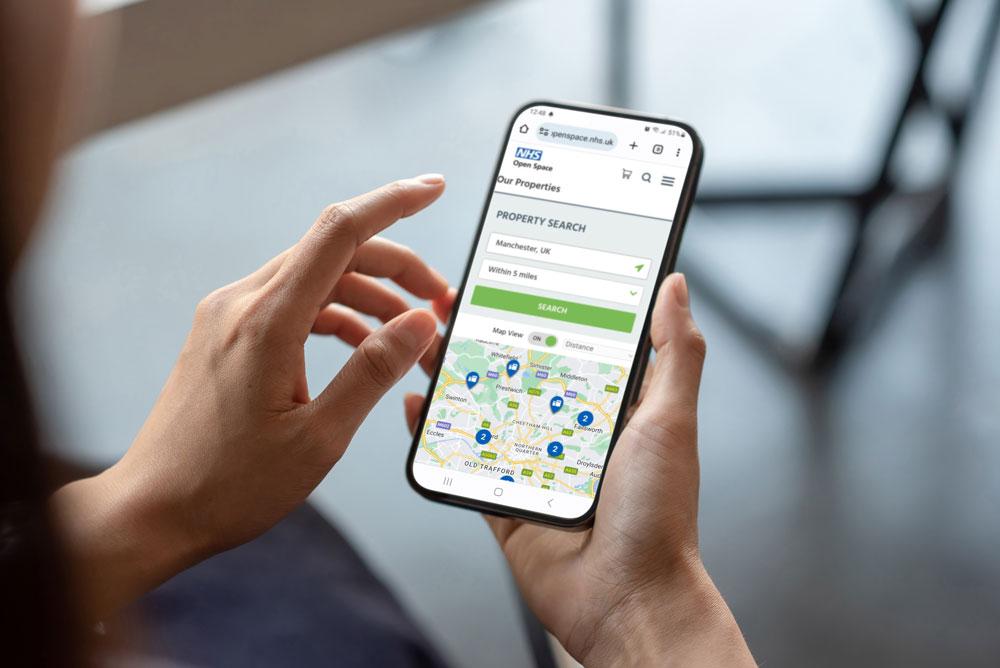Stewart Clure and Grahame Rose collaborate to answer some questions on the current state of NHS parking, providing expert analysis on everything from the short- and long-term impacts of the pandemic on NHS sites to the role of technology in parking management
2020 has seen the issue of parking at NHS sites reach the front-pages, after the government decision in March to provide immediate financial backing for all NHS trusts to provide free car parking to NHS staff for the duration of coronavirus. Health Secretary Matt Hancock pledged that the government will cover the costs of providing free car parking to NHS staff working in hospitals during this unprecedented time, whilst Local Government Secretary Robert Jenrick also revealed that local councils would offer free car parking to all NHS workers and social care staff during the coronavirus outbreak.
The coronavirus ‘free parking’ offer also overshadowed new rules that came into play in April, which meant that four groups of people will no longer be charged for parking in hospitals in England: disabled people; frequent out-patient attenders; parents of sick children staying overnight; and staff working night shifts.
But, with much of the country returning to pre-lockdown patterns of working and hospitals dealing with fewer coronavirus-related admissions, what plans to support the NHS moving forward are in place? Grahame Rose says that GroupNexus has worked with its NHS clients throughout the last six months to ensure that adequate parking solutions were in place for their staff, including opening up patient parking areas and offering free staff parking. The company also reached out to clients across its full estate and made an additional offer of free parking for NHS staff across all of its 1,200 national car parks.
Alongside free parking provisions, Stewart Clure, from Debt Recovery Plus, points to the number of operators who have also provided marshalling services and simple, additional provisions, such as personal protective equipment (PPE). On top of this, DRP has also seen many operators look towards other avenues to help in any way they can, makinguse of their vehicles to provide deliveries to ensure vital services are maintained.
Moving forward, Rose says that GroupNexus already has the technology to help its NHS clients better understand their customers, primarily patients, and is working on tech-based solutions the will, solve many of the problems that they face, both pre-coronavirus and those that have arisen since March.
However, while the free parking offer was welcomed across the board, it would be wrong to assume that the impact of coronavirus has only been felt within the hospital building. There has been the obvious effect on income as there was reduced demand from patients and visitors, which freed up the space needed for existing and extra staff that was required during the lockdown period.
Although the state of play, regarding the virus, has changed, visitor and patient numbers are still lagging so many NHS trusts are continuing to experience a reduction in car park income. This has a knock-on effect on other services within the NHS, and has also reignited the debate around hospital parking charges, particularly for staff. For Grahame Rose, it has been interesting to hear that Matt Hancock recognises that generally hospitals do not have enough space and that charging is the only effective mechanism for controlling demand.
This is a point that Stewart Clure picks up on, highlighting that, whilst the cost of parking at NHS sites has always been seen as controversial, the revenue does provide a healthy lifeline to all trusts to ensure other services continue. Whilst the effect of this revenue loss may not be apparent yet, he expects to see services in other areas of the NHS to feel the impact during the next quarter.
Resumed demand
As an operator, GroupNexus will continue to use its parking management and insights platform to monitor the volume of vehicles on site as demand for spaces increases, and adjust the management of each site accordingly. As footfall increases and normal day to day services resume, the management of NHS sites by parking operators will be under the spotlight once again. Expecting that most sites will see a spike in traffic, Clure says that if the increase is not monitored and effectively analysed, it will create more problems than we have previously seen.
Group Nexus has introduced the InCar waiting system, which is a unique way of managing traffic count on site and helps to mitigate any risk and control traffic dwell times around NHS sites. As patients arrive on-site, they receive a message that the department they are visiting has been notified that they are on-site and to wait in the car - then they will receive a message when it’s time for their appointment. This prevents large groups of people waiting inside the hospital waiting room and assists with the current coronavirus-safety practices. It also works for A&E departments, allowing receptionists to ask patients to wait in their car or a different area until they are messaged.
Persistent offenders
Here, our conversation turns towards the problem of persistent offenders. Grahame Rose says that, surprisingly, the majority of persistent offenders on NHS sites are staff members who don’t qualify for a permit or continually park in areas that they are not permitted to park. If such offenders are not health with at an early stage, it runs the risk of undermining the entire parking management system, as other staff members quickly find out and copy them.
The systems used by GroupNexus are able to easily highlight persistent offenders, and DRP escalates the recovery process so that persistent offenders are dealt with, preventing such practices becoming endemic. DRP provides a full end-to-end service with its clients which identifies these motorists, issues a further debt recovery warning and ultimately, where the client permits, provides litigation options where appropriate action is taken. Stewart Clure states that the company always provides the motorist with every opportunity to resolve the issue pre- litigation, through various communication methods to ensure a swift and amicable resolution.
Using technology effectively
To assume that the use of technology is restricted to operating theatres and A&E departments is incorrect. The use of ANPR (Automatic Number Plate Recognition) cameras combined with parking management and insights platforms, such as the one mentioned earlier by Grahame Rose, allows company’s like GroupNexus to monitor vehicle movements in near-real-time. Grahame says that this enables them to understand peak visitor times, average dwell times as well as overall usage and therefore allows operators to better manage sites more efficiently and effectively.
He says: “Our platform also allows us to monitor and enforce the parking terms and conditions; this, coupled with the knowledge gained from understanding our data, allows us to ensure that spaces are available for patients and visitors and those staff who are permitted to park.”
So, how can operators ensure that the parking experience is simple and easy to understand for patients, visitors and staff? Stewart Clure says that the answer is simple. The most common way to ensure clarity is through signage that is clear, concise, not misleading and frequent. The British Parking Association and IPC have clear guidelines which operators must adhere to, to ensure that motorist entering the site receive plenty of notice of the consequences of not adhering to site rules. Clure strongly believes that GroupNexus are a great example of a client going over and above the expectations required to ensure the motorist has every opportunity to adhere to rules at each site.
Grahame Rose couldn’t agree more. Understanding that people can feel anxious on entering a hospital, GroupNexus takes special care to ensure that all signage is clear and easy to understand, featuring signage both inside and outside of the hospital in order to ensure visitors are aware of the parking requirements.
Lastly, Rose says that his patented technology streams thumbnail pictures of vehicles that match the registration that a visitor starts to enter on the payment terminals, allowing users to simply touch the picture of their vehicle and the terminal calculates the amount to pay.
The Panellists
Stewart Clure, Debt Recovery Plus
Stewart joined Debt Recovery Plus in 2015, having previously spent five years working in the private parking sector. Through his experience of working with clients on retail, commercial, NHS and various other sites, Stewart was able to bring his knowledge of the industry to DRP. Since graduating from Leeds University with a 2:1 in Maths, Stewart worked on the Barclays Graduate Scheme before ending up at Savills.

Grahame Rose, Group Nexus
Grahame joined CP Plus in 1995. Coming from a small business background his ‘hands on’, service orientated approach fitted in perfectly with the business outlook. He has been instrumental in the creation of GroupNexus, from a company that managed 28 sites when he joined to its current portfolio of over 1,200. Grahame is a Board Member of the British Parking Association, regularly speaking at industry events.






